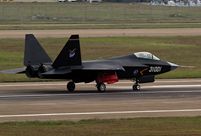 Close-up view of August Aerobatic Team
Close-up view of August Aerobatic Team
 Goddesses married in 2014
Goddesses married in 2014
 Polar region photos raise worldwide awareness of global warming
Polar region photos raise worldwide awareness of global warming
 Get off at the last stop — Beijing Subway in vision
Get off at the last stop — Beijing Subway in vision
 Top 100 beauties in the world!
Top 100 beauties in the world!
 Gallery: Who is the most beautiful one?
Gallery: Who is the most beautiful one?
 If you like autumn, put your hands in the air!
If you like autumn, put your hands in the air!
 Fan Bingbing's "Queen style" in new play
Fan Bingbing's "Queen style" in new play
 Lingerie show at 2014 Miss China
Lingerie show at 2014 Miss China
 J-10 fighters show aerobatic stunts in smog-free sky
J-10 fighters show aerobatic stunts in smog-free sky
Slumping global demand may keep prices depressed in 2015, say sources
China is likely to cut retail fuel prices by about 490 yuan ($79) a metric ton from Friday, after the Organization of Petroleum Exporting Countries forecast lower global demand for crude in 2015.
Global demand for crude from OPEC members will slump to 28.92 million barrels per day in 2015, which is below the 28.93 million bpd that was recorded in 2009, and the lowest since the 27.05 million bpd needed in 2003, according to a monthly report published by the organization.
The forecast number is short by 280,000 bpd from earlier estimates and more than 1 million bpd less than OPEC's current output level. At the organization's meeting in Vienna on Nov 27, OPEC members decided to keep their production target unchanged at 30 million bpd.
Oil prices have been falling steadily since June this year as demand weakened in China and Europe, while output in the United States recorded a steady growth. Prices also fell as Saudi Arabia, a leading OPEC member, took steps to protect its market share in Asia, said Ann-Louise Hittle, head of macro oils research at the Edinburgh, Scotland-based Wood Mackenzie, a global energy, metals and mining consultancy.
Demand slowed in China after the government decided to adjust its fast economic growth to a slower and more sustainable mode. As a result, the country's demand for commodities including crude, steel, iron ore and coal slowed significantly and contributed to a weakening downstream market.
Based on the current retail gasoline and diesel price adjustment mechanism in China, the nation's top economic planner, the National Development and Reform Commission, will announce the ninth cut in fuel prices in succession this year on Friday, said a report from Longzhong Information Technology Co, an oil consultancy based in Shandong province.
On March 26, 2013, China has moved to the current fuel retail pricing mechanism, which is closely linked to the international crude prices.
However, the NDRC also has the right to suspend, delay or narrow the price adjustment when the global crude market suffers wild fluctuations or there are some unexpected incidents.
Xu Ying, an analyst with Longzhong, said it is quite possible that the NDRC may opt for a small price cut, so as to protect the market.
"For petrochemical companies, the disadvantages are more than the benefits from oil price cuts," said Xu. "Although raw material costs get reduced, the companies will face bigger challenges due to a shrinking market."
The continuous fall in oil prices has increased the overall market risks as petrochemical firms face rising inventories and reluctant buyers, she said.
Li Yan, another analyst with Longzhong, said that a number of small and medium-sized petrochemical companies will go bankrupt if the international crude prices fall by another $10 a barrel in the next few months.
Brent crude, the international benchmark, fell to $64 a barrel while West Texas Intermediate, another key indicator, dropped to $60.94 a barrel on Wednesday. What this means, said industry experts, is that crude prices have fallen nearly 40 percent so far this year.
Saudi Arabia, the biggest crude exporter in the OPEC, has remained silent on cutting output to prevent further price slides.
In addition, oil reserves in the US have peaked to a record from the level last seen in 1975, according to the US Energy Information Administration.
(For the latest China news, Please follow People's Daily on Twitter and Facebook
 20 years on: Relocated Three Gorges residents through lens
20 years on: Relocated Three Gorges residents through lens PLA HK Garrison veterans leave behind beautiful smiles
PLA HK Garrison veterans leave behind beautiful smiles Representative beauties of each province in China
Representative beauties of each province in China Chestnut girl goes viral online
Chestnut girl goes viral online Victoria's Secret Fashion Show
Victoria's Secret Fashion Show In photos: Bright and brave female soldier of PLA
In photos: Bright and brave female soldier of PLA China's charming first lady
China's charming first lady Excellent photos of Zhuhai Air Show
Excellent photos of Zhuhai Air Show China's heavyweight aircraft
China's heavyweight aircraft An old problem
An old problem Despite torture report, US escapes censure
Despite torture report, US escapes censure  Inflation hits five-year low
Inflation hits five-year low Runaway brides
Runaway bridesDay|Week|Month